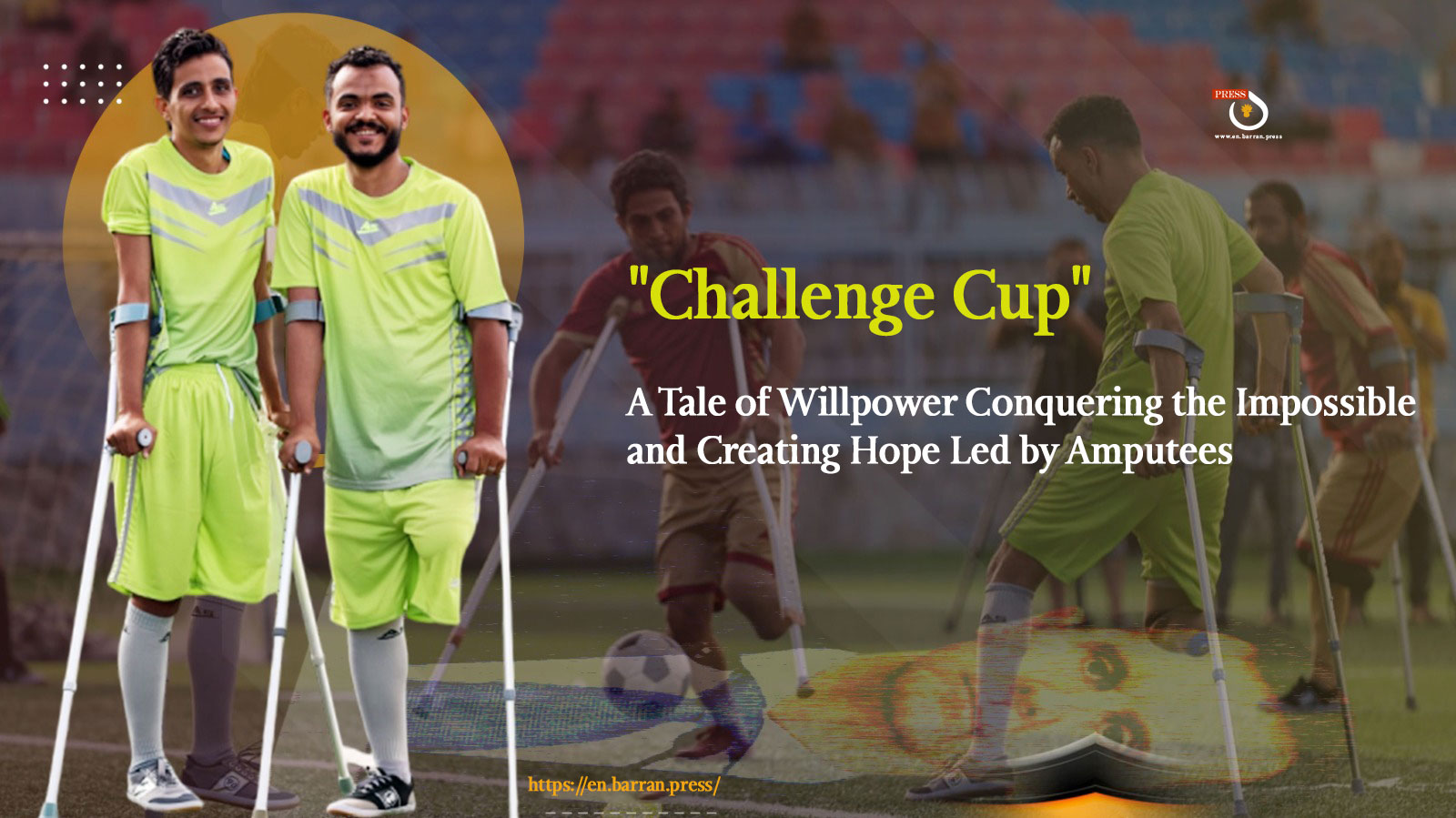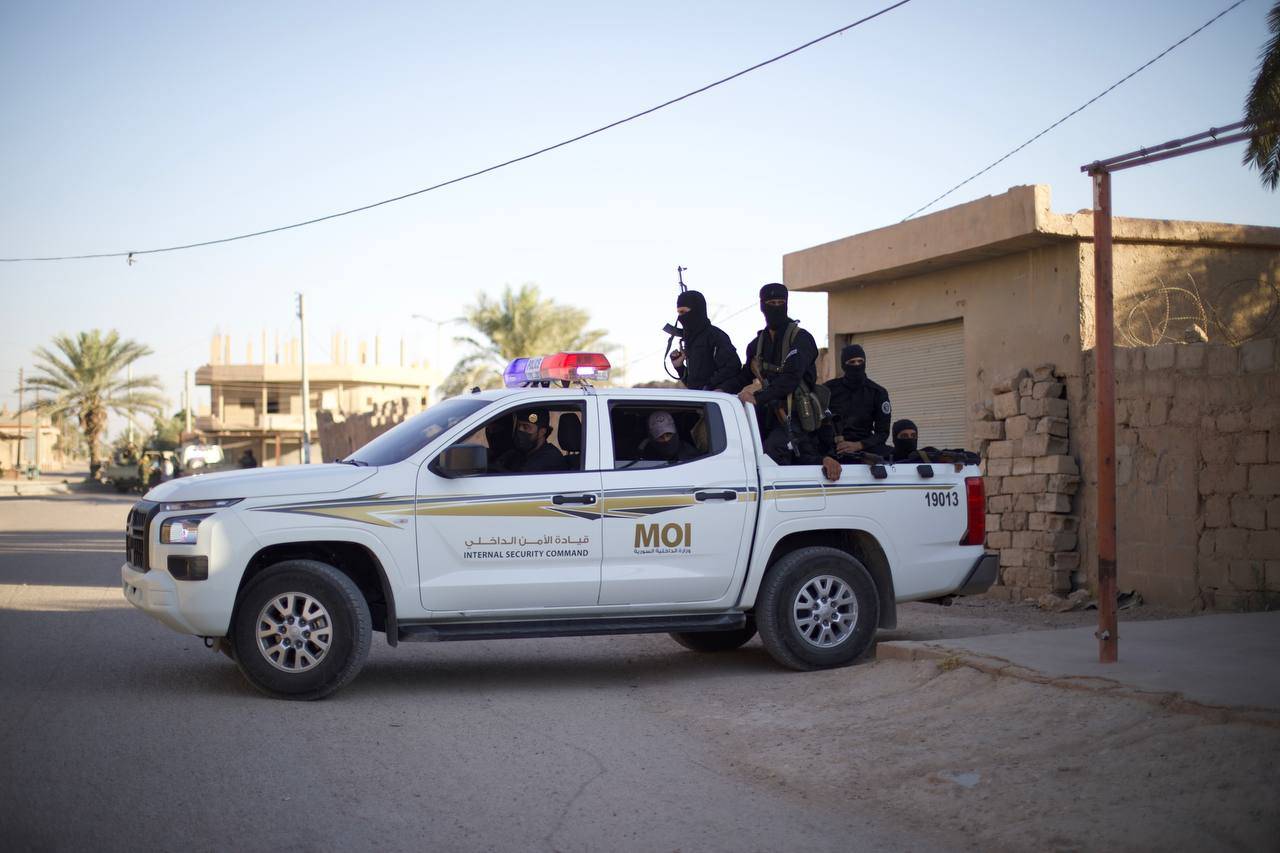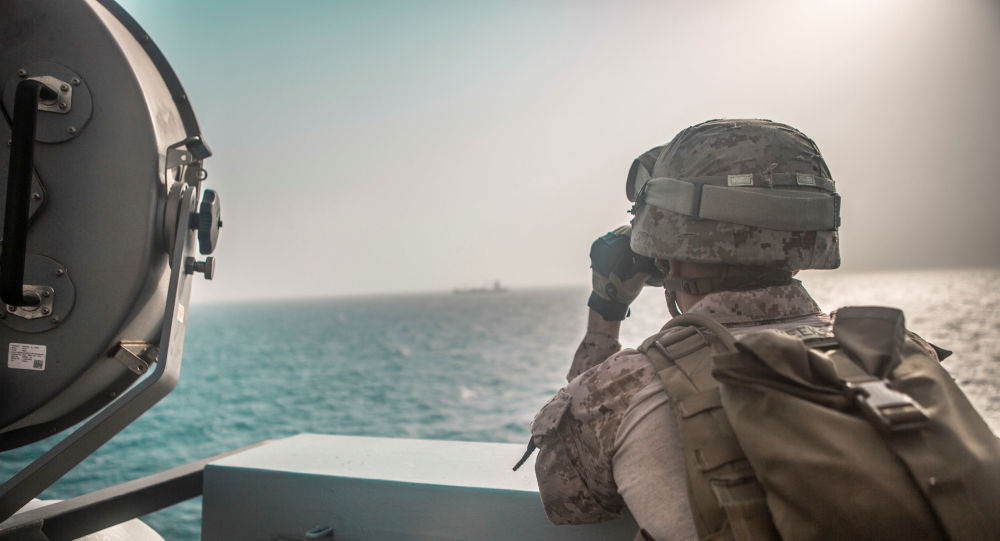
Barran Press - Inas Al-Hemiary
Amid the overwhelming challenges imposed by war and its atrocities, inspiring stories of individuals defying disability have emerged, becoming models of strong willpower.
Recently, an extraordinary sports initiative has brought amputees together in Yemen under the banner of the "Challenge Cup." This sports event has proven that hope can bloom even in the harshest conditions.
Walid Al-Qadasi, one of the participants in the tournament, describes his experience as unique and remarkable, filled with hard work and challenges.
"It was an experience full of challenges and hard work. Preparation required a lot of commitment, whether through daily training or strengthening team spirit. The goal was not just to win but to prove that willpower overcomes obstacles," Al-Qadasi told "Barran Press."
Regarding the main difficulties he faced, Al-Qadasi said, "Dealing with infrastructure not suited for people with disabilities, like roads and public facilities, was tough. There were also psychological challenges initially, but support and determination helped me overcome them."
Message of Hope
For Walid, the initiative is not just a sports tournament but a message with deeper dimensions. "Participation boosts my self-confidence and strengthens social bonds with my teammates and the community that supports us," he said.
"Sports for me are more than just an activity; it's a way to improve my physical and mental health and prove that disability does not mean the end of the road," Walid added.
Walid called on concerned authorities to provide the necessary support for amputees, whether through prosthetic devices or infrastructure improvements, and to support initiatives that integrate them into society, especially through sports.
"Sports give us hope and reshape our lives," he concluded.
Psychological and Social Treatment
Psychologist Reem Al-Absi emphasizes the significant role of sports in enhancing the psychological and social health of individuals, especially amputees.
"Sports do not just improve physical health but also enhance psychological well-being by releasing happiness hormones like endorphins, reducing stress and anxiety, and boosting self-confidence. They also promote self-discipline and help individuals achieve their goals," Reem told "Barran Press."
"For amputees, sports significantly improve their psychological and social state by helping them overcome disability challenges and fostering a sense of achievement. Engaging in sports reduces stress and depression and provides a supportive environment for social integration," she added.
Overcoming Despair
Reem emphasizes the importance of overcoming societal stigma through sports, explaining that "sports activities demonstrate amputees' ability to achieve, changing society's perception of them and granting them a positive status."
Sports achievements boost morale and provide psychological resilience to face frustrations and painful memories, she noted.
Reem cited studies showing that amputees who engage in sports experience lower rates of depression compared to their non-active peers. "Sports create hope and optimism for them, contributing to faster psychological and physical recovery, especially through sports rehabilitation programs," she said.
An Inspirational Idea
Jihad Al-Buraihi, the initiator of "Amputee Sports," shared the beginning of forming the team with "Barran Press." "The idea came by chance while browsing social media, where I saw an amputee football match," he said.
"I was surprised by their ability to play and started looking for the game's details and organizing rules," Jihad explained.
Jihad faced difficulties in turning the idea into reality. "Initially, it was hard to convince amputees to participate since the game was new to them," he said.
To overcome this, "I showed videos of European championships to explain the idea, and I succeeded in gathering three people as a start," he added.
Challenges didn't stop there; the team faced other obstacles like the lack of suitable playing spaces and no government or community support.
Despite all this, Jihad said, "We continued despite all challenges until the Youth and Sports Office contacted us and supported us in launching the first official match."
Today, Jihad is working on expanding the team and welcoming amputees from various regions, with the ambition to organize a local championship and participate in international events.
Means for Integration and Recovery
Regarding the "Challenge Cup," Fuad Fadil, Director of the Youth and Sports Office in Taiz, explained that organizing the cup came from a national and humanitarian responsibility towards amputees, who are among the most affected groups by the war.
"This group bears the war's scars on their bodies, so it was our duty to work on reintegrating them into society and giving them hope and confidence in their ability to achieve," he added.
"Sports represent a means for psychological and physical healing and recovery. Through the Challenge Cup, we aim to highlight their suffering and showcase their inspiring stories. This initiative expresses our appreciation for their sacrifices and reinforces social solidarity values," Fadil said.
He pointed out that the Youth and Sports Office is working on providing a suitable sports environment for amputees and aims to offer all necessary support to empower them to achieve their dreams.
Towards a More Inclusive Future
The "Challenge Cup" initiative is not just a sports tournament but a message of hope that embodies strong willpower and resilience in the face of challenges. From the stories of Walid and Jihad to the support of Reem and Fuad, the meanings of determination and solidarity are reflected.
This first step towards empowering and integrating amputees into society strengthens the hope for a more inclusive and humane future.
The hope remains pinned on government authorities, humanitarian organizations, and civil society to provide more support and assistance, whether through improving infrastructure or providing prosthetic devices.
Although sports alone won't solve all problems, they have proven capable of breaking barriers and opening new horizons, where the impossible becomes possible, and willpower overcomes all constraints.





